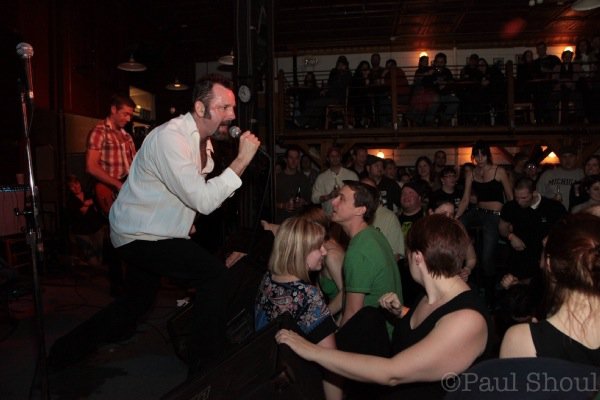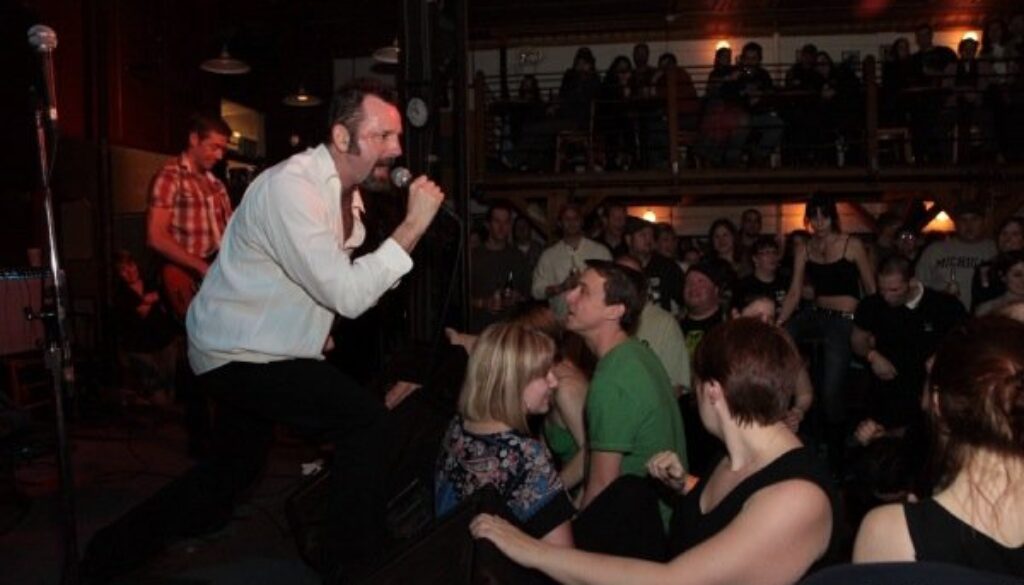Marmite Cowboy: A Ripping Good Read

I’m having a rollicking good time reading John Allen’s autobiography: Marmite Cowboy. Or perhaps I should say a bollocking good time, since John is well-known hereabouts as the founder and lead singer of the Big Bad Bollocks, a wildly popular pub rock band that toured the US and the UK for 20 years and now performs occasionally.
Marmite Cowboy is a delightful picaresque (“the adventures of an engagingly roguish hero described in a series of humorous or satiric episodes”) that traces John’s travels from the small village in the North of England where he was born, to the Liverpool Art College (where Lennon met McCartney), to the good old USA, “a Land of Oz imagined from TV shows, movies, comic books and Camel cigarette packs.”
I’ve learned a lot about England, especially the divide between the grebos of the North and nobs of the South. John grew up in the shadow of Gibbet Rock, which was where the nobs dealt with anyone who refused to be the cannon-fodder of empire.
There was a lengthy procedure, prescribed by centuries of tradition, whereby they were hanged until nearly dead, then their entrails were extracted and burned before their eyes, and then they were suspended in a human-shaped cage and left to die as an example to others.
When we watch Prince William and Princess Kate and their offspring, we ought to remember what their way of life is based on.
We learn a lot about America, too. The slices of life we read about are not tourist destinations, but real ones — a country club in Ohio, a mafia bar in Michigan, a hippie farm in Georgia, and many others, where we meet a fascinating array of characters, from catamite clerics to paranoid gangsters.
In the early chapters of Marmite Cowboy, we also build our word power with terms like balbriggan, gobsmack, grebo and Shimmygog.
And we learn about John’s unique destiny. He shuttles back and forth between his native and adopted countries like Henry James, always wishing for the one when he’s in the other.
Finally he travels back to England with this funny hat with wings on it, and gets ridiculed at every stage of the journey, but most of all back in his home village, and it all becomes clear to him.
“By the standards of local troglodytes I did look like a twat in that hat, but I didn’t want anyone telling me that I couldn’t look like a twat if I felt like looking like one.
“My role in the village had always been ‘the nonconformist’. Just like Vicar, the Headmaster, the Butchers, the Builders, the Village Idiot, etc.
“I had a role, and part of my role was that one day I’d have to leave and turn my back on the place I was born — a bittersweet destiny to be sure.”
What makes this book a great read is its scathing honesty. There are parts that a lesser soul might have wanted to leave out, but the author decided to let us have it all, unedited, unexpurgated, in all its wild and crazy glory.
And its humility. There’s a lot of sex, drugs, and rock ‘n’ roll, but not a trace of boasting or pretension, which would poison a work of this kind.
The truth has an unmistakable ring to it, and that’s what distinguishes a feel-good memoir from a real work of art, and a ripping good read.
